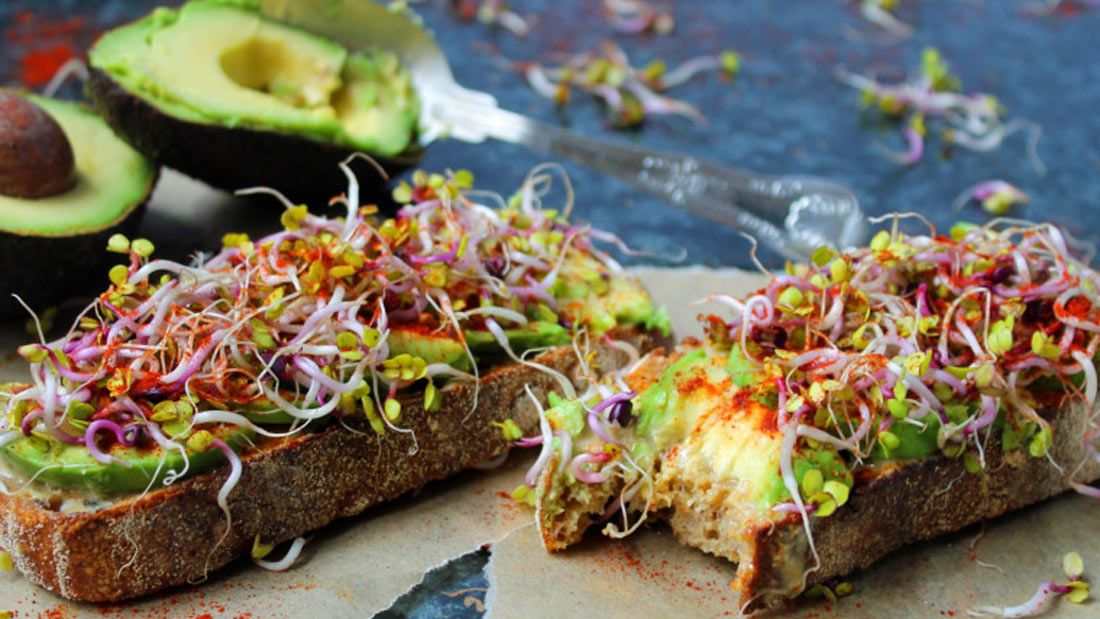6 important facts about B vitamins

If you’ve been vegan for any time at all, no doubt you would have heard a lot about one particular B vitamin – B12! But how much do you know about the others?
There are eight B vitamins in total and they’re all important for different reasons. With that in mind, we thought we’d give you the lowdown on this often overlooked group of vitamins.
Here are some of the things you should know about B vitamins.
1. The body needs them to release energy from food
All B vitamins help the body convert carbohydrates from food into the main body fuel (glucose) needed for energy.
B vitamins are also important for fat and protein metabolism, healthy immune system and nervous system functioning.
2. Most B vitamins are plentiful in a balanced diet
Thankfully, you should be getting enough B vitamins simply by eating a balanced diet. Vitamin B1 (thiamine), B2 (riboflavin), B3 (niacin), B5 (pantothenic acid), B6 (pyridoxine), and B7 (biotin) are found in abundance in plant-based foods.
Deficiencies in these vitamins are, therefore, very rare. If you’re eating enough fruits and veggies, wholegrains, pulses, nuts and seeds then you should be getting enough!
3. All vegans should supplement with B12
B12 is essential for healthy nerve and immune function, mood and red blood cell production.
We tend to hear a lot about it as vegans, as it’s the only B vitamin we can’t get from unfortified plant foods. That’s because, in our heavily sanitised world, the bacteria in soil and water that naturally produce B12, are washed off of our food before we consume it. Perhaps, surprisingly, this is the same for a lot of farmed animals, particularly those that live inside, who also receive B12 as supplements.
Viva! recommends taking a daily supplement providing at least 50 micrograms per day. This is especially important if you’re over 50, as absorption declines with age.
You can also get B12 fortified foods such as nutritional yeast, spreads, plant milks and spreads. However, research suggests that the body may only be able to absorb as little as 50 per cent of B12 from foods. That said, B12 can be difficult to absorb from animal foods as it is bound to animal protein.
The good news is, as a water-soluble vitamin, excess amounts will leave the body in the urine. Official guidelines say taking 2,000 micrograms of B12 or less a day is unlikely to cause harm.

4. Pregnant women and young girls need more B9 (folic acid)
Vitamin B9, otherwise known as folate (or folic acid) is crucial for brain and nerve function, DNA, red blood cell and cell reproduction.
It is particularly important in pregnant women, or those trying for a baby, as having sufficient folate helps to prevent neural tube defects. It is thought that over 90 per cent of women of childbearing age may have low levels, and therefore, the government advises that women take 400 micrograms of folic acid daily until week 12 of pregnancy.
Almost a third of girls may also have low levels, indicating an increased risk of anaemia.
The good news is that folate is found in high levels in many healthy plant-based foods such as nutritional yeast, edamame, tempeh, tofu, soya milk and, as the name implies, green vegetables such as spinach, kale, rocket, broccoli and peas.
5. Nutritional yeast packed with B vitamins
If you want to make sure you’re getting enough of those beautiful B vits, look no further than nutritional yeast (known to many vegans as ‘nooch’).
Nutritional yeast flakes can be used as a condiment or ingredient. It is made from yeast grown on molasses and then harvested, washed and heated to kill or ‘deactivate’ it.
Nutritional yeast is a B vitamin goldmine. It is naturally rich in all B vitamins, apart from vitamin B12. However, you can buy one that’s fortified with B12 to cover all bases! You can also get one now that has vitamin D added to it too.
6. As is Marmite
Love or hate it, Marmite is similarly absolutely packed with B vitamins. A serving of marmite will give you a boost of B vitamins, including B12, just don’t go too crazy with it as it contains added salt.
However, if you really can’t stand the stuff, then maybe stick to the ‘nooch’!




